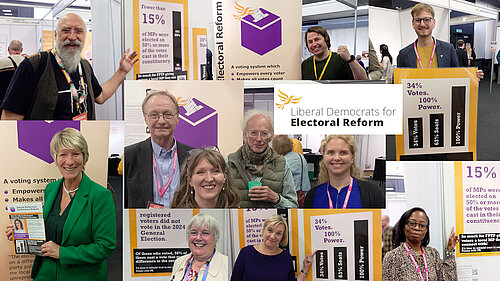Liberal Democrat Conference passes Fair Votes motion

Delegates at the 2024 Liberal Democrat Conference in Brighton passed a detailed and comprehensive motion regarding Electoral Reform. Part of its remit allows the party to formally take the fight to replace the existing First-Past-the-Post system (FPTP) system in UK General Elections with one structured to deliver true proportional representation.
During a well-attended session, members debated many aspects of improving the existing and imperfect electoral arrangements, such as cutting the Conservative-introduced Voter Id scheme, extending the rights of younger people to vote and strengthening the Electoral Commission. You can read the passed motion here.
LDER's chair, Keith Sharp, made a valuable contribution laying out some of the key messages we need for our efforts to be successful: that this must be an emotional campaign about fairness and equality; governmental inability to deliver change and the resultant lack of accountability corrodes the foundations of our democracy; and empowering the individual at the ballot box is the core to liberalism.
Keith also successfully argued against a proposed amendment seeking to adopt the AV+ system in favour of our preferred voting system for proportional representation, namely STV. You can read our analysis of the various alternatives to FPTP here.
To cap off a successful conference, Liberal Democrats for Electoral Reform also signed up many new members. If you would like to be part of the campaign to change our electoral system for the better, please join us here.
